Gardener Ruxley: Mastering the Art of Sustainable Gardening
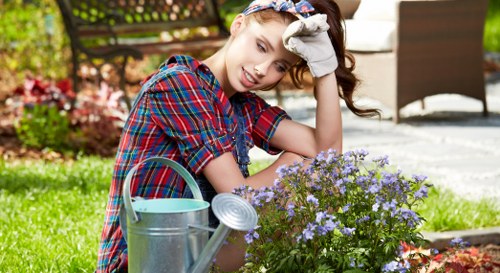
Gardening has never been more important than it is today. With increasing awareness about sustainability and the environment, many people are turning to gardening as a way to contribute positively to the planet. One name that stands out in this field is Gardener Ruxley, a renowned expert known for innovative and sustainable gardening practices.
Gardener Ruxley's approach combines traditional gardening techniques with modern sustainability practices. This blend not only ensures beautiful gardens but also promotes environmental health. Whether you're a seasoned gardener or just starting, Ruxley's methods can transform your gardening experience.
In this article, we'll delve into the philosophies, techniques, and local influences that make Gardener Ruxley a leader in the gardening community. From choosing the right plants to maintaining soil health, Ruxley's expertise covers all aspects of gardening.
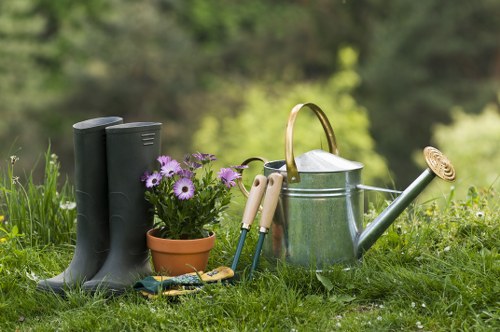
The Philosophy Behind Gardener Ruxley
The core philosophy of Gardener Ruxley revolves around sustainability and harmony with nature. Ruxley believes that gardening should enhance the environment rather than deplete it.
Ruxley's methods emphasize the use of native plants, reducing water usage, and minimizing chemical inputs. This eco-friendly approach not only benefits the garden but also the broader ecosystem, attracting pollinators and promoting biodiversity.
By focusing on sustainability, Ruxley encourages gardeners to adopt practices that are both environmentally responsible and economically viable. This balance ensures that gardening remains a rewarding and feasible hobby for everyone.
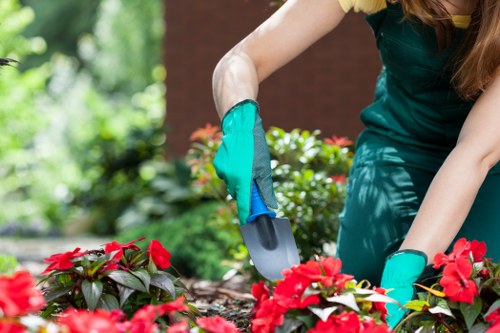
Key Techniques Utilized by Gardener Ruxley
1. Water Conservation
Water is a precious resource, and Ruxley advocates for its careful management. Techniques such as drip irrigation, rainwater harvesting, and mulching are integral to Ruxley's water conservation strategy.
2. Soil Health
Healthy soil is the foundation of a thriving garden. Ruxley emphasizes the importance of composting, crop rotation, and the use of organic fertilizers to maintain and improve soil quality.
3. Native Plant Selection
Choosing native plants is a key aspect of Ruxley's approach. Native plants are well-adapted to the local climate and soil conditions, requiring less maintenance and resources compared to non-native species.
These techniques not only make gardens more sustainable but also create habitats for local wildlife, enhancing the overall ecosystem.
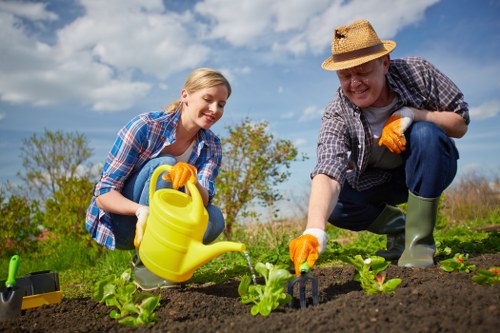
Creating a Sustainable Garden with Ruxley's Methods
Implementing Gardener Ruxley's strategies can transform your garden into a sustainable paradise. Here's a step-by-step guide to get you started:
- Assess Your Space: Evaluate the size, sunlight, and soil type of your garden.
- Choose Native Plants: Select plants that are native to your region to ensure they thrive with minimal intervention.
- Implement Water Conservation Techniques: Install drip irrigation and collect rainwater to reduce water usage.
- Enhance Soil Health: Use compost and organic fertilizers to nourish your soil.
- Promote Biodiversity: Incorporate a variety of plants to attract pollinators and beneficial insects.
By following these steps, you can create a garden that is not only beautiful but also environmentally responsible.
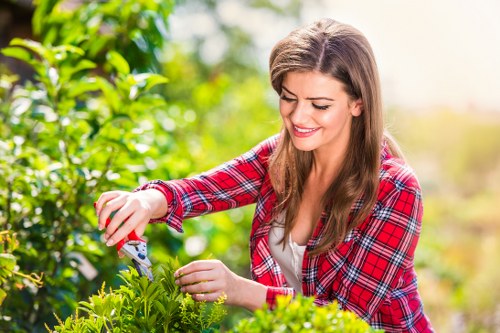
Local Influence: Areas Surrounding Ruxley
Gardener Ruxley's work is especially impactful in the nearby areas, each offering unique features that complement sustainable gardening.
1. Greenfield
Located just 5 miles from Ruxley, Greenfield is known for its fertile soil and ideal climate for a wide variety of plants.
2. Brookside
Brookside is renowned for its abundant water resources, making it perfect for implementing advanced irrigation techniques.
3. Maplewood
Maplewood offers rich biodiversity, providing a perfect environment for native plants and pollinators.
4. Pine Hill
Pine Hill's elevated terrain offers unique challenges and opportunities for sustainable gardening.
5. Oak Grove
Oak Grove's extensive tree cover provides natural shade, reducing the need for artificial shade structures.
6. Riverside
Riverside's proximity to water bodies allows for innovative water conservation practices.
7. Sunnyside
Sunnyside enjoys ample sunlight, making it ideal for sun-loving native plants.
8. Meadowbrook
Meadowbrook's open spaces are perfect for creating diverse plant communities.
9. Hillcrest
Hillcrest's varied elevation supports a range of plant species, enhancing garden diversity.
10. Lakeside
Lakeside's serene environment provides a peaceful setting for sustainable gardening practices.
11. Cedar Valley
Cedar Valley's rich history and natural resources make it a hub for sustainable gardening initiatives.
12. Willow Bend
Willow Bend's gentle slopes and water access are perfect for implementing eco-friendly gardening techniques.
13. Birchwood
Birchwood's unique soil composition offers diverse planting opportunities for sustainable gardens.
14. Aspen Heights
Aspen Heights' elevated position provides excellent drainage, crucial for healthy plant growth.
15. Rosewood
Rosewood's vibrant community supports gardeners with resources and knowledge to adopt sustainable practices.
Frequently Asked Questions
1. What makes Gardener Ruxley's methods sustainable?
Gardener Ruxley's methods focus on using native plants, conserving water, enhancing soil health, and promoting biodiversity. These practices reduce the environmental impact of gardening and foster a healthy ecosystem.
2. Can beginners follow Gardener Ruxley's techniques?
Absolutely! Ruxley's techniques are designed to be accessible to gardeners of all skill levels. By following step-by-step guides and starting with simple practices like composting, beginners can gradually implement sustainable methods.
3. What are the benefits of using native plants in my garden?
Native plants are well-adapted to the local climate and soil conditions, requiring less water and maintenance. They also support local wildlife, including pollinators, and contribute to the overall biodiversity of the area.
4. How can I conserve water in my garden?
Water conservation can be achieved through techniques like drip irrigation, using mulch to retain soil moisture, collecting rainwater, and choosing drought-resistant plants. These methods help reduce water usage while maintaining a healthy garden.
5. What are some common challenges in sustainable gardening?
Common challenges include managing pests without chemicals, maintaining soil health, and ensuring adequate water supply. However, with the right techniques and knowledge, these challenges can be effectively addressed.

